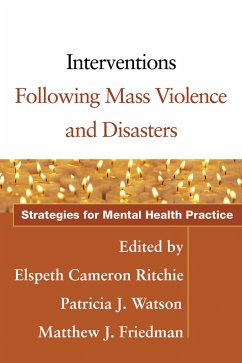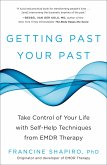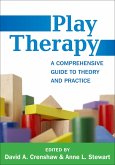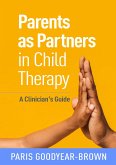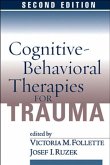Matthew J. Friedman / Patricia J. Watson (eds.)Strategies for Mental Health Practice
Interventions Following Mass Violence and Disasters
Strategies for Mental Health Practice
Herausgeber: Ritchie, Elspeth Cameron; Friedman, Matthew J; Watson, Patricia J
Matthew J. Friedman / Patricia J. Watson (eds.)Strategies for Mental Health Practice
Interventions Following Mass Violence and Disasters
Strategies for Mental Health Practice
Herausgeber: Ritchie, Elspeth Cameron; Friedman, Matthew J; Watson, Patricia J
- Gebundenes Buch
- Merkliste
- Auf die Merkliste
- Bewerten Bewerten
- Teilen
- Produkt teilen
- Produkterinnerung
- Produkterinnerung
Grounded in the best science available, this essential volume presents practical guidelines for effective clinical intervention in the immediate, intermediate, and long-term aftermath of large-scale traumatic events. Vital lessons learned from a variety of mass traumas and natural disasters are incorporated into the book's thorough review of strategies for helping specific victim and survivor populations. The editors and authors include over 40 leading experts in disaster mental health. Of crucial importance, they clearly summarize the empirical evidence supporting each intervention and…mehr
Andere Kunden interessierten sich auch für
![Getting Past Your Past Getting Past Your Past]() Francine ShapiroGetting Past Your Past12,99 €
Francine ShapiroGetting Past Your Past12,99 €![School-Based Multisystemic Interventions For Mass Trauma School-Based Multisystemic Interventions For Mass Trauma]() Avigdor KlingmanSchool-Based Multisystemic Interventions For Mass Trauma77,99 €
Avigdor KlingmanSchool-Based Multisystemic Interventions For Mass Trauma77,99 €![School-Based Multisystemic Interventions For Mass Trauma School-Based Multisystemic Interventions For Mass Trauma]() Avigdor KlingmanSchool-Based Multisystemic Interventions For Mass Trauma75,99 €
Avigdor KlingmanSchool-Based Multisystemic Interventions For Mass Trauma75,99 €![Play Therapy Play Therapy]() Play Therapy99,99 €
Play Therapy99,99 €![Parents as Partners in Child Therapy Parents as Partners in Child Therapy]() Paris Goodyear-BrownParents as Partners in Child Therapy62,99 €
Paris Goodyear-BrownParents as Partners in Child Therapy62,99 €![Cognitive-Behavioral Therapies for Trauma, Second Edition Cognitive-Behavioral Therapies for Trauma, Second Edition]() Victoria M. Follette / Josef I. Ruzek (eds.)Cognitive-Behavioral Therapies for Trauma, Second Edition111,99 €
Victoria M. Follette / Josef I. Ruzek (eds.)Cognitive-Behavioral Therapies for Trauma, Second Edition111,99 €![Treating Traumatized Children Treating Traumatized Children]() Treating Traumatized Children41,99 €
Treating Traumatized Children41,99 €-
-
-
Grounded in the best science available, this essential volume presents practical guidelines for effective clinical intervention in the immediate, intermediate, and long-term aftermath of large-scale traumatic events. Vital lessons learned from a variety of mass traumas and natural disasters are incorporated into the book's thorough review of strategies for helping specific victim and survivor populations. The editors and authors include over 40 leading experts in disaster mental health. Of crucial importance, they clearly summarize the empirical evidence supporting each intervention and provide other guidance based on experience and consensus recommendations.
Hinweis: Dieser Artikel kann nur an eine deutsche Lieferadresse ausgeliefert werden.
Hinweis: Dieser Artikel kann nur an eine deutsche Lieferadresse ausgeliefert werden.
Produktdetails
- Produktdetails
- Verlag: Guilford Publications
- Seitenzahl: 430
- Erscheinungstermin: 1. Januar 2006
- Englisch
- Abmessung: 233mm x 162mm x 35mm
- Gewicht: 717g
- ISBN-13: 9781593852566
- ISBN-10: 1593852568
- Artikelnr.: 21728779
- Herstellerkennzeichnung
- Libri GmbH
- Europaallee 1
- 36244 Bad Hersfeld
- gpsr@libri.de
- Verlag: Guilford Publications
- Seitenzahl: 430
- Erscheinungstermin: 1. Januar 2006
- Englisch
- Abmessung: 233mm x 162mm x 35mm
- Gewicht: 717g
- ISBN-13: 9781593852566
- ISBN-10: 1593852568
- Artikelnr.: 21728779
- Herstellerkennzeichnung
- Libri GmbH
- Europaallee 1
- 36244 Bad Hersfeld
- gpsr@libri.de
Elspeth Cameron Ritchie, MD, MPH, is Psychiatry Consultant to the U.S. Army Surgeon General. Her assignments and other missions have taken her to Korea, Somalia, Iraq, Israel, and Vietnam. An internationally recognized expert, Dr. Ritchie brings a unique public health approach to the management of disaster and combat mental health issues. She has published numerous articles on forensic, disaster, and military operational psychiatry. Patricia J. Watson, PhD, is a Senior Educational Specialist for the National Center for PTSD. She collaborates with the Substance Abuse and Mental Health Services Administration, the Centers for Disease Control and Prevention, and subject-matter experts to create publications for public and mental health interventions following large-scale terrorism, disaster, and pandemic flu. Matthew J. Friedman, MD, PhD, before retiring in 2022, was founder and Director of the National PTSD Brain Bank; Senior Advisor to the National Center for PTSD, where he served for 24 years as Executive Director; and Professor and Vice Chair for Research in the Department of Psychiatry at the Geisel School of Medicine at Dartmouth. He worked as a clinician and researcher for over 50 years, and has approximately 360 publications, including 29 books. Dr. Friedman is past president of the International Society for Traumatic Stress Studies and past chair of the American Psychiatric Association's DSM-5-TR and DSM-5 PTSD Work Groups. He has served on numerous national research, education, and policy committees and has received many honors for his leadership and contributions to the field.
I. Introduction 1. Overview
Matthew J. Friedman
Elspeth Cameron Ritchie
and Patricia J. Watson 2. Models of Early Intervention Following Mass Violence and Other Trauma
Josef I. Ruzek II. Preparation
Training
and Needs Assessment 3. Improving Resilience Trajectories Following Mass Violence and Disaster
Patricia J. Watson
Elspeth Cameron Ritchie
James Demer
Paul Bartone
and Betty J. Pfefferbaum 4. Disaster Mental Health Training: Guidelines
Considerations
and Recommendations
Bruce H. Young
Josef I. Ruzek
Marlene Wong
Mark S. Salzer
and April J. Naturale 5. Immediate Needs Assessment Following Catastrophic Disaster Incidents
Anthony H. Speier III. Mental Health Interventions 6. Interventions for Traumatic Stress: Theoretical Basis
Arieh Y. Shalev 7. The Context of Providing Immediate Postevent Intervention
Roderick J. ÿrner
Adrian T. Kent
Betty J. Pfefferbaum
Beverley Raphael
and Patricia J. Watson 8. The Immediate Response to Disaster: Guidelines for Adult Psychological First Aid
Bruce H. Young 9. Intermediate Interventions
Richard A. Bryant and Brett T. Litz 10. Longer-Term Mental Health Interventions for Adults Following Disasters and Mass Violence
Beverley Raphael and Sally Wooding 11. Consultation to Groups
Organizations
and Communities
James E. McCarroll and Robert J. Ursano 12. On a Road Paved with Good Intentions
You Still Need a Compass: Monitoring and Evaluating Disaster Mental Health Services
Craig S. Rosen
Helena E. Young
and Fran H. Norris IV. Specific Situations and Populations 13. Interventions for Children and Adolescents Following Disasters
Judith A. Cohen
Anthony P. Mannarino
Laura E. Gibson
Stephen J. Cozza
Melissa J. Brymer
and Laura Murray 14. Rapid Development of Family Assistance Centers: Lessons Learned Following the September 11 Terrorist Attacks
Gregory A. Leskin
William J. Huleatt
Jack Herrmann
Lisa R. LaDue
and Fred D. Gusman 15. Psychiatric Intervention for Medical and Surgical Patients Following Traumatic Injuries
Harold J. Wain
Geoffrey G. Grammer
John Stasinos
and Catherine M. DeBoer 16. Mitigation of Psychological Effects of Weapons of Mass Destruction
Ross H. Pastel and Elspeth Cameron Ritchie 17. Promoting Disaster Recovery in Ethnic-Minority Individuals and Communities
Fran H. Norris and Margarita AlegrÃa 18. Toward Understanding and Creating Systems of Postdisaster Care: A Case Study of New York's Response to the World Trade Center Disaster
Fran H. Norris
Jessica L. Hamblen
Patricia J. Watson
Josef I. Ruzek
Laura E. Gibson
Betty J. Pfefferbaum
Jennifer L. Price
Susan P. Stevens
Bruce H. Young
and Matthew J. Friedman 19. Outreach Strategies: An Experiential Description of the Outreach Methodologies Used in the September 11 Disaster Response in New York
April J. Naturale V. Creating an Agenda for the Future 20. Conducting Research on Mental Health Interventions
Brett T. Litz and Laura E. Gibson 21. Mental Health and Behavioral Interventions for Victims of Disasters and Mass Violence: Caring
Planning
and Needs
Robert J. Ursano and Matthew J. Friedman
Matthew J. Friedman
Elspeth Cameron Ritchie
and Patricia J. Watson 2. Models of Early Intervention Following Mass Violence and Other Trauma
Josef I. Ruzek II. Preparation
Training
and Needs Assessment 3. Improving Resilience Trajectories Following Mass Violence and Disaster
Patricia J. Watson
Elspeth Cameron Ritchie
James Demer
Paul Bartone
and Betty J. Pfefferbaum 4. Disaster Mental Health Training: Guidelines
Considerations
and Recommendations
Bruce H. Young
Josef I. Ruzek
Marlene Wong
Mark S. Salzer
and April J. Naturale 5. Immediate Needs Assessment Following Catastrophic Disaster Incidents
Anthony H. Speier III. Mental Health Interventions 6. Interventions for Traumatic Stress: Theoretical Basis
Arieh Y. Shalev 7. The Context of Providing Immediate Postevent Intervention
Roderick J. ÿrner
Adrian T. Kent
Betty J. Pfefferbaum
Beverley Raphael
and Patricia J. Watson 8. The Immediate Response to Disaster: Guidelines for Adult Psychological First Aid
Bruce H. Young 9. Intermediate Interventions
Richard A. Bryant and Brett T. Litz 10. Longer-Term Mental Health Interventions for Adults Following Disasters and Mass Violence
Beverley Raphael and Sally Wooding 11. Consultation to Groups
Organizations
and Communities
James E. McCarroll and Robert J. Ursano 12. On a Road Paved with Good Intentions
You Still Need a Compass: Monitoring and Evaluating Disaster Mental Health Services
Craig S. Rosen
Helena E. Young
and Fran H. Norris IV. Specific Situations and Populations 13. Interventions for Children and Adolescents Following Disasters
Judith A. Cohen
Anthony P. Mannarino
Laura E. Gibson
Stephen J. Cozza
Melissa J. Brymer
and Laura Murray 14. Rapid Development of Family Assistance Centers: Lessons Learned Following the September 11 Terrorist Attacks
Gregory A. Leskin
William J. Huleatt
Jack Herrmann
Lisa R. LaDue
and Fred D. Gusman 15. Psychiatric Intervention for Medical and Surgical Patients Following Traumatic Injuries
Harold J. Wain
Geoffrey G. Grammer
John Stasinos
and Catherine M. DeBoer 16. Mitigation of Psychological Effects of Weapons of Mass Destruction
Ross H. Pastel and Elspeth Cameron Ritchie 17. Promoting Disaster Recovery in Ethnic-Minority Individuals and Communities
Fran H. Norris and Margarita AlegrÃa 18. Toward Understanding and Creating Systems of Postdisaster Care: A Case Study of New York's Response to the World Trade Center Disaster
Fran H. Norris
Jessica L. Hamblen
Patricia J. Watson
Josef I. Ruzek
Laura E. Gibson
Betty J. Pfefferbaum
Jennifer L. Price
Susan P. Stevens
Bruce H. Young
and Matthew J. Friedman 19. Outreach Strategies: An Experiential Description of the Outreach Methodologies Used in the September 11 Disaster Response in New York
April J. Naturale V. Creating an Agenda for the Future 20. Conducting Research on Mental Health Interventions
Brett T. Litz and Laura E. Gibson 21. Mental Health and Behavioral Interventions for Victims of Disasters and Mass Violence: Caring
Planning
and Needs
Robert J. Ursano and Matthew J. Friedman
I. Introduction 1. Overview
Matthew J. Friedman
Elspeth Cameron Ritchie
and Patricia J. Watson 2. Models of Early Intervention Following Mass Violence and Other Trauma
Josef I. Ruzek II. Preparation
Training
and Needs Assessment 3. Improving Resilience Trajectories Following Mass Violence and Disaster
Patricia J. Watson
Elspeth Cameron Ritchie
James Demer
Paul Bartone
and Betty J. Pfefferbaum 4. Disaster Mental Health Training: Guidelines
Considerations
and Recommendations
Bruce H. Young
Josef I. Ruzek
Marlene Wong
Mark S. Salzer
and April J. Naturale 5. Immediate Needs Assessment Following Catastrophic Disaster Incidents
Anthony H. Speier III. Mental Health Interventions 6. Interventions for Traumatic Stress: Theoretical Basis
Arieh Y. Shalev 7. The Context of Providing Immediate Postevent Intervention
Roderick J. ÿrner
Adrian T. Kent
Betty J. Pfefferbaum
Beverley Raphael
and Patricia J. Watson 8. The Immediate Response to Disaster: Guidelines for Adult Psychological First Aid
Bruce H. Young 9. Intermediate Interventions
Richard A. Bryant and Brett T. Litz 10. Longer-Term Mental Health Interventions for Adults Following Disasters and Mass Violence
Beverley Raphael and Sally Wooding 11. Consultation to Groups
Organizations
and Communities
James E. McCarroll and Robert J. Ursano 12. On a Road Paved with Good Intentions
You Still Need a Compass: Monitoring and Evaluating Disaster Mental Health Services
Craig S. Rosen
Helena E. Young
and Fran H. Norris IV. Specific Situations and Populations 13. Interventions for Children and Adolescents Following Disasters
Judith A. Cohen
Anthony P. Mannarino
Laura E. Gibson
Stephen J. Cozza
Melissa J. Brymer
and Laura Murray 14. Rapid Development of Family Assistance Centers: Lessons Learned Following the September 11 Terrorist Attacks
Gregory A. Leskin
William J. Huleatt
Jack Herrmann
Lisa R. LaDue
and Fred D. Gusman 15. Psychiatric Intervention for Medical and Surgical Patients Following Traumatic Injuries
Harold J. Wain
Geoffrey G. Grammer
John Stasinos
and Catherine M. DeBoer 16. Mitigation of Psychological Effects of Weapons of Mass Destruction
Ross H. Pastel and Elspeth Cameron Ritchie 17. Promoting Disaster Recovery in Ethnic-Minority Individuals and Communities
Fran H. Norris and Margarita AlegrÃa 18. Toward Understanding and Creating Systems of Postdisaster Care: A Case Study of New York's Response to the World Trade Center Disaster
Fran H. Norris
Jessica L. Hamblen
Patricia J. Watson
Josef I. Ruzek
Laura E. Gibson
Betty J. Pfefferbaum
Jennifer L. Price
Susan P. Stevens
Bruce H. Young
and Matthew J. Friedman 19. Outreach Strategies: An Experiential Description of the Outreach Methodologies Used in the September 11 Disaster Response in New York
April J. Naturale V. Creating an Agenda for the Future 20. Conducting Research on Mental Health Interventions
Brett T. Litz and Laura E. Gibson 21. Mental Health and Behavioral Interventions for Victims of Disasters and Mass Violence: Caring
Planning
and Needs
Robert J. Ursano and Matthew J. Friedman
Matthew J. Friedman
Elspeth Cameron Ritchie
and Patricia J. Watson 2. Models of Early Intervention Following Mass Violence and Other Trauma
Josef I. Ruzek II. Preparation
Training
and Needs Assessment 3. Improving Resilience Trajectories Following Mass Violence and Disaster
Patricia J. Watson
Elspeth Cameron Ritchie
James Demer
Paul Bartone
and Betty J. Pfefferbaum 4. Disaster Mental Health Training: Guidelines
Considerations
and Recommendations
Bruce H. Young
Josef I. Ruzek
Marlene Wong
Mark S. Salzer
and April J. Naturale 5. Immediate Needs Assessment Following Catastrophic Disaster Incidents
Anthony H. Speier III. Mental Health Interventions 6. Interventions for Traumatic Stress: Theoretical Basis
Arieh Y. Shalev 7. The Context of Providing Immediate Postevent Intervention
Roderick J. ÿrner
Adrian T. Kent
Betty J. Pfefferbaum
Beverley Raphael
and Patricia J. Watson 8. The Immediate Response to Disaster: Guidelines for Adult Psychological First Aid
Bruce H. Young 9. Intermediate Interventions
Richard A. Bryant and Brett T. Litz 10. Longer-Term Mental Health Interventions for Adults Following Disasters and Mass Violence
Beverley Raphael and Sally Wooding 11. Consultation to Groups
Organizations
and Communities
James E. McCarroll and Robert J. Ursano 12. On a Road Paved with Good Intentions
You Still Need a Compass: Monitoring and Evaluating Disaster Mental Health Services
Craig S. Rosen
Helena E. Young
and Fran H. Norris IV. Specific Situations and Populations 13. Interventions for Children and Adolescents Following Disasters
Judith A. Cohen
Anthony P. Mannarino
Laura E. Gibson
Stephen J. Cozza
Melissa J. Brymer
and Laura Murray 14. Rapid Development of Family Assistance Centers: Lessons Learned Following the September 11 Terrorist Attacks
Gregory A. Leskin
William J. Huleatt
Jack Herrmann
Lisa R. LaDue
and Fred D. Gusman 15. Psychiatric Intervention for Medical and Surgical Patients Following Traumatic Injuries
Harold J. Wain
Geoffrey G. Grammer
John Stasinos
and Catherine M. DeBoer 16. Mitigation of Psychological Effects of Weapons of Mass Destruction
Ross H. Pastel and Elspeth Cameron Ritchie 17. Promoting Disaster Recovery in Ethnic-Minority Individuals and Communities
Fran H. Norris and Margarita AlegrÃa 18. Toward Understanding and Creating Systems of Postdisaster Care: A Case Study of New York's Response to the World Trade Center Disaster
Fran H. Norris
Jessica L. Hamblen
Patricia J. Watson
Josef I. Ruzek
Laura E. Gibson
Betty J. Pfefferbaum
Jennifer L. Price
Susan P. Stevens
Bruce H. Young
and Matthew J. Friedman 19. Outreach Strategies: An Experiential Description of the Outreach Methodologies Used in the September 11 Disaster Response in New York
April J. Naturale V. Creating an Agenda for the Future 20. Conducting Research on Mental Health Interventions
Brett T. Litz and Laura E. Gibson 21. Mental Health and Behavioral Interventions for Victims of Disasters and Mass Violence: Caring
Planning
and Needs
Robert J. Ursano and Matthew J. Friedman

